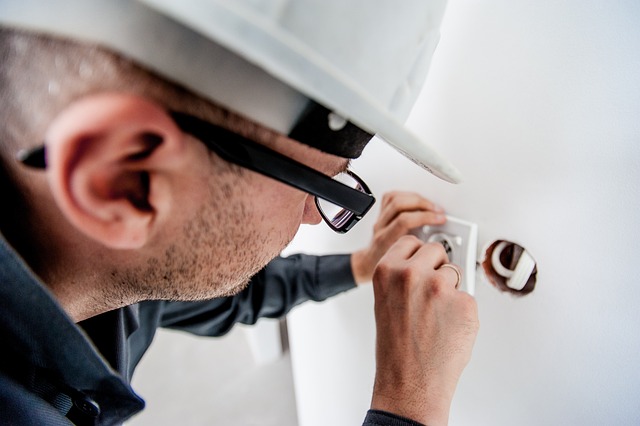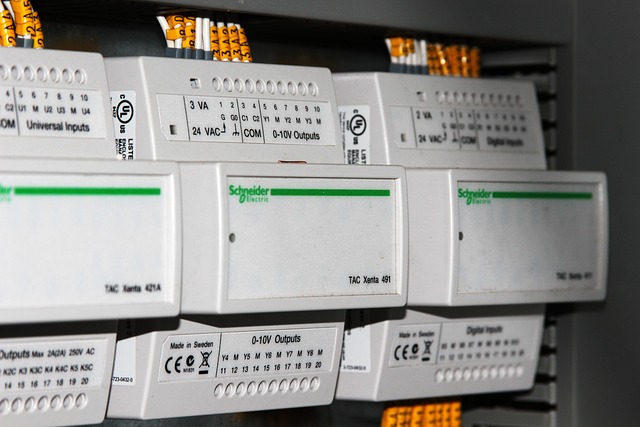Electricians are key professionals responsible for upholding high electrical safety standards to protect personnel, property, and public safety from electricity-related risks. Their work involves adherence to the National Electrical Code (NEC) and other safety regulations, which guide proper installation, maintenance, and repair of electrical systems. This includes selecting appropriate equipment, handling voltage correctly, implementing grounding protocols, and enacting fire prevention measures. Electricians must be knowledgeable in these codes and apply their expertise to ensure all electrical work is compliant, safe, and up-to-date with legal requirements. Their diligence extends beyond compliance, actively minimizing the risk of accidents and ensuring residential electrical systems are efficient and safe. Regular inspections, upgrades, and integration of new technologies are part of their role in maintaining the integrity of these systems. The use of Ground Fault Circuit Interrupters (GFCIs) in moisture-prone areas further enhances safety by preventing shocks and fires. In essence, electricians are essential for ensuring that electrical installations comply with safety standards, prevent hazards, and protect homes and families from the dangers of electrical malfunctions or substandard installations.
When it comes to safeguarding your home, few factors are as critical as ensuring all electrical work complies with stringent safety regulations. This article delves into the pivotal role of professional electricians in maintaining and installing electrical systems that protect against hazards. We’ll explore the essential safety measures and best practices for electrical installations, highlighting their significance in upholding a secure living environment. Stay informed on the standards and practices that guarantee your home’s electrical integrity.
- Understanding Electrical Safety Standards and an Electrician's Role
- The Importance of Professional Electrical Work for Home Safety
- Essential Safety Measures and Best Practices for Electrical Installations
Understanding Electrical Safety Standards and an Electrician's Role

Understanding electrical safety standards is paramount in ensuring the protection of both personnel and property from potential hazards associated with electricity. These standards, which are established by local and national authorities, serve as a guideline for safe installation, maintenance, and repair of electrical systems. They cover a wide range of aspects, including the selection of appropriate equipment, the safe handling of voltage levels, proper grounding to prevent electric shock, and the prevention of fire hazards. Electricians play a critical role in this context by not only being familiar with these regulations but also by applying them diligently during their work. Their expertise ensures that electrical installations are up to code, reducing the risk of accidents and ensuring compliance with legal requirements.
An electrician’s responsibilities extend beyond merely connecting wires and switches. They must possess a comprehensive understanding of the National Electrical Code (NEC) and other relevant safety standards, which govern the design, installation, and inspection of electrical systems. Electricians are tasked with interpreting these standards to tailor their work to each specific project, ensuring that every connection, circuit, and piece of equipment is both functional and safe. Their role involves regular inspections and upgrades to existing electrical infrastructure, as well as the implementation of new technologies that enhance safety and efficiency. Through their adherence to these standards, electricians help maintain the integrity of electrical systems, thereby contributing significantly to public safety.
The Importance of Professional Electrical Work for Home Safety

When it comes to electrical work within residential properties, professional expertise is paramount for ensuring home safety. An experienced electrician brings a wealth of knowledge and precision that is crucial for the safe operation of electrical systems. These professionals are trained to understand and implement local and national electrical codes, which provide the framework for safe installations and repairs. Their role in assessing and upgrading electrical infrastructure not only prevents hazards such as electrical fires but also ensures the efficient delivery of power throughout the home. By choosing a certified electrician, homeowners can rest assured that every connection, circuit, and outlet is functioning correctly and meets rigorous safety standards. This commitment to safety isn’t just about adhering to regulations; it’s about protecting families and their belongings from potential dangers that can arise from electrical faults or improper installations. The investment in professional electrical work is an investment in the long-term safety and integrity of one’s home.
Essential Safety Measures and Best Practices for Electrical Installations

When undertaking electrical installations, safety is paramount. Qualified electricians must adhere to a strict set of safety measures to ensure both the integrity of the installation and the well-being of individuals using the electrical system. To begin with, all installations should comply with the latest national electrical codes, which provide guidelines on proper conductor sizing, overcurrent protection, and bonding practices. Electricians must select appropriate conductors capable of carrying the intended loads without degradation over time, ensuring that circuit breakers or fuses are correctly sized to protect against overcurrent events.
In addition to these technical aspects, electricians should also employ best practices such as regular inspection and maintenance of the electrical system. This includes testing devices for proper function, verifying that all connections are secure and free from corrosion, and ensuring that all equipment is rated for the conditions in which it is used. Proper labeling of circuit breakers and wiring diagrams aids in easy identification of circuits and facilitates rapid shutdown in case of an emergency. Moreover, the use of ground-fault circuit interrupters (GFCIs) in areas prone to moisture, such as bathrooms or kitchens, is crucial to prevent electrical shocks and fires. By combining adherence to safety regulations with diligent maintenance and the use of modern safety devices, electricians play a vital role in safeguarding homes and businesses from the risks associated with electrical installations.
When it comes to safeguarding homes from electrical hazards, adherence to safety regulations is paramount. This article has delineated the critical role of professional electricians in ensuring that all electrical work aligns with stringent safety standards. By implementing essential safety measures and best practices during electrical installations, these experts safeguard property and lives. Homeowners are encouraged to engage only licensed electricians for their electrical needs to maintain a safe living environment. In light of the detailed discussions on understanding electrical safety standards and the importance of professional work, it is clear that trusting qualified professionals is not just a precaution but an essential commitment to home safety.
